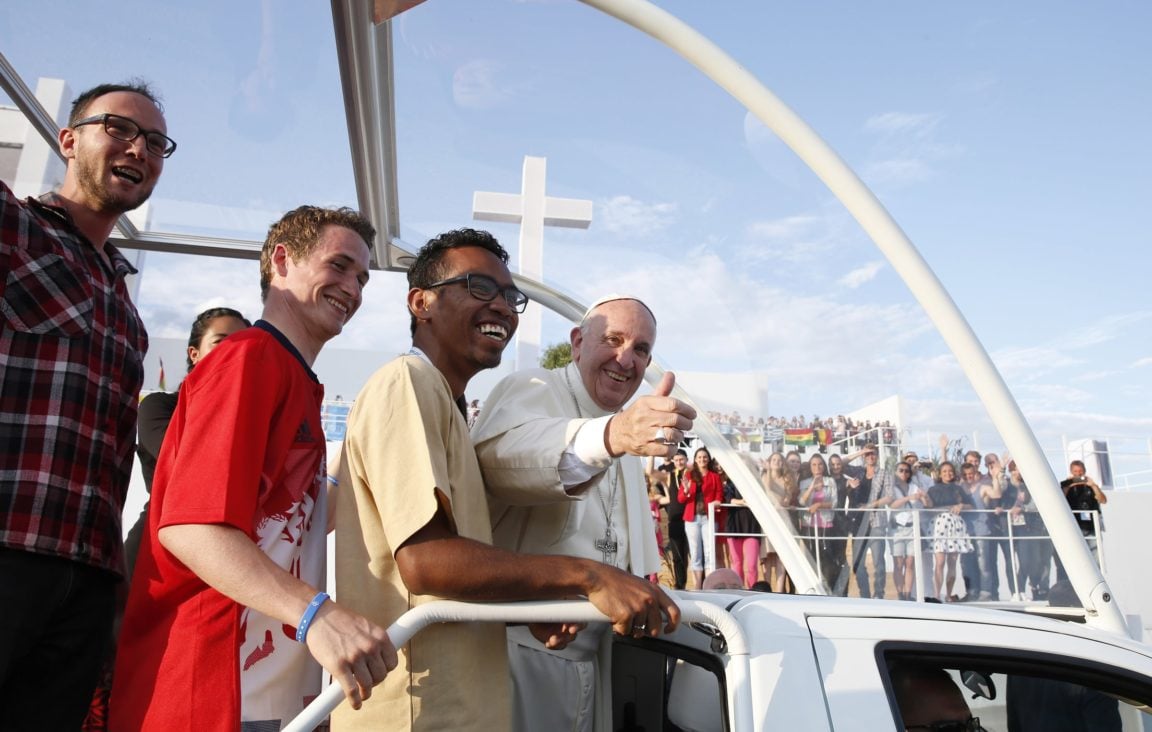
When I arrived in Kraków for World Youth Day 2016, I was pretty exhausted but enthused as I approached my first appointment right in the heart of the Old City.
I was one of a group of bishops and priests invited to spend time with the original youth group of Fr Karol Wojtyła.
These were men and women, now in their 70s and 80s, whom the young Fr Karol had called together at St Florian’s Church, the parish that still serves the university community in Kraków.
He took them on camping and kayaking trips in the countryside surrounding Kraków, sharing their lives and subtly training them in Catholic philosophy, theology, and spirituality. This was, to be sure, an act of subversion at a time when the government was attempting to impose a dreary atheism on the Polish people.
Over the decades, these young people stayed with Wojtyła (whom they called Wujek or Uncle), and he officiated at their weddings and baptised their children and grandchildren.
We gathered at a long wooden dining table in a cosy room where, we were told, Fr Wojtyła had once celebrated Mass.
We spoke of many things: when they first met John Paul, what it was like to be with him, the constant warfare with Communist spies and informers, his manner of prayer, etc. While we talked, I kept looking across the room at a bookshelf on which rested a framed photograph of the young Fr Wojtyła in profile – and I just felt his presence there palpably.
As the evening wore on, we commenced to hear the cries and songs of the young people who had gathered for WYD coming in through the open windows. How wonderful, I thought, that we were with the core group from which eventually grew this phenomenon.
The next morning, I had, I must say, one of the greatest experiences in my 30 years as a priest. I was asked to lead a Eucharistic procession and benediction at what had been dubbed ‘The Mercy Centre’ and to give a short reflection, but nothing prepared me for what I would see and feel.
The place was filled, floor to rafters, with about 25,000 young people, and when the Blessed Sacrament was carried into the arena, everyone knelt down. Then, as the Lord was brought slowly up and down the aisles of the ground floor of the stadium, the music swelled, and young people wept, called, stretched out their hands, and prostrated themselves.
Walking right behind the Sacrament, I had a privileged vantage point, and I thought, “This is just what it must have been like when Jesus entered a town or when he processed into Jerusalem on Palm Sunday.
Hanging from the rafters, far over our heads, were banners featuring portraits of the great Polish 20th-century martyrs, Bl Jerzy Popiełuszko and St Maximilian Kolbe, stark reminders that following Jesus is always a journey, one way or another, to the cross. I can’t remember another time in the last 30 years when I felt the presence of the Lord more vividly.
We are passing through a particularly dark moment in the world’s history.
But in the wizened faces of the members of Wojtyła’s friends, in the enraptured cries of 25,000 young people in the presence of the Blessed Sacrament, in the serene witness of Poland’s martyrs, and in the mercy, within mercy, within mercy proclaimed by Faustina, I found much ground for hope.
This is the edited text of a reflection by Bishop Robert Barron of Los Angeles which first appeared on wordonfire.org
